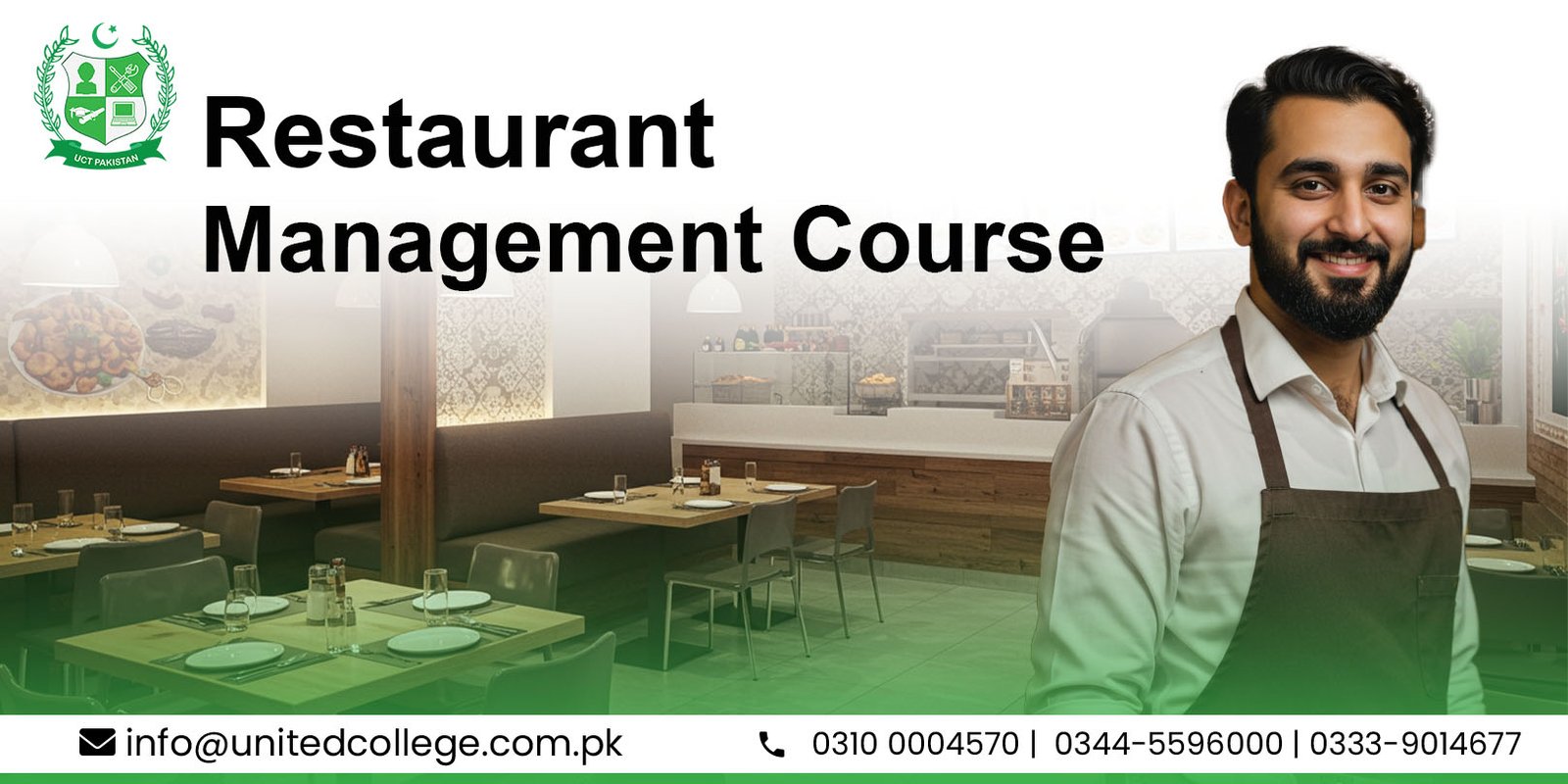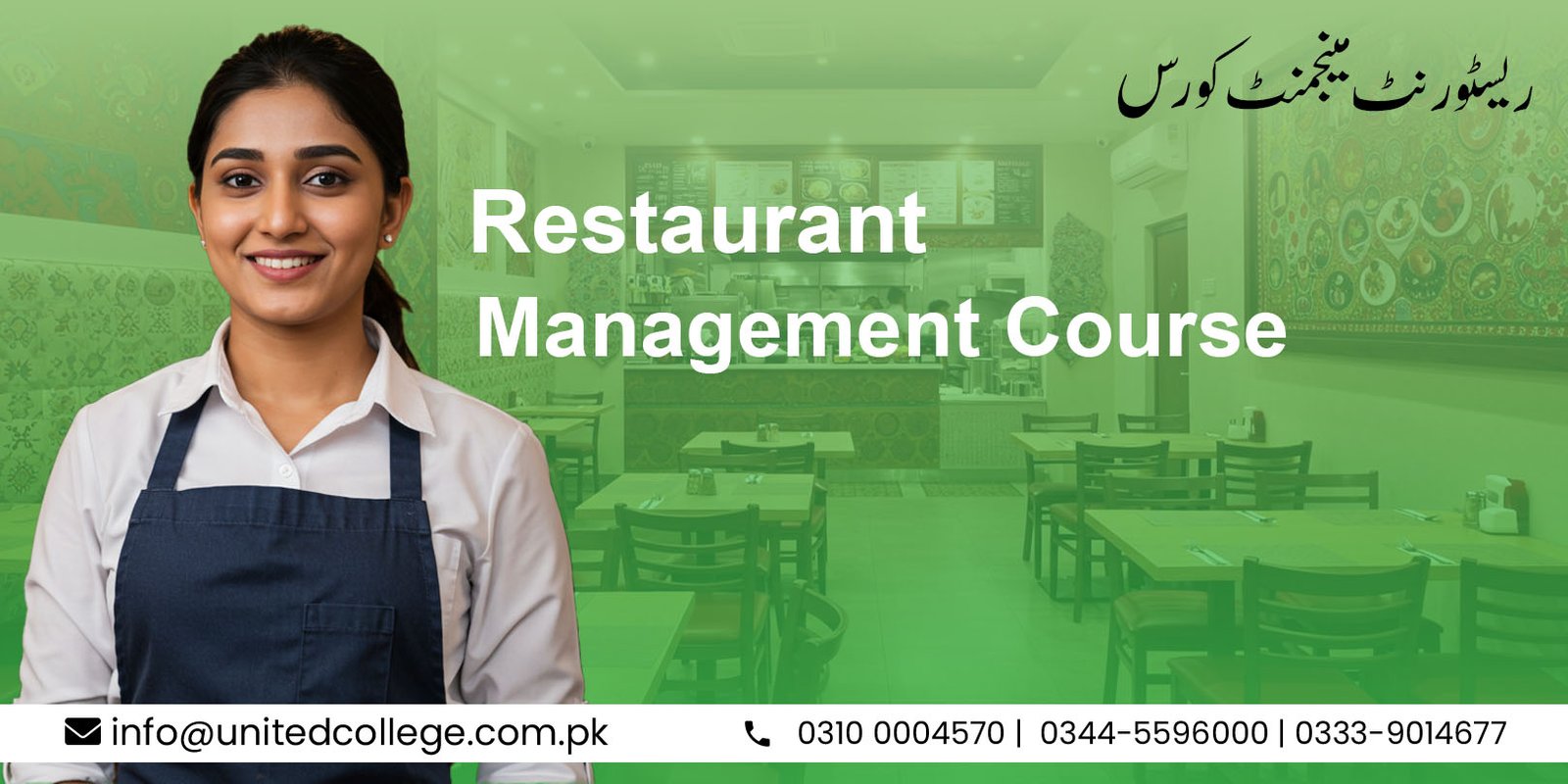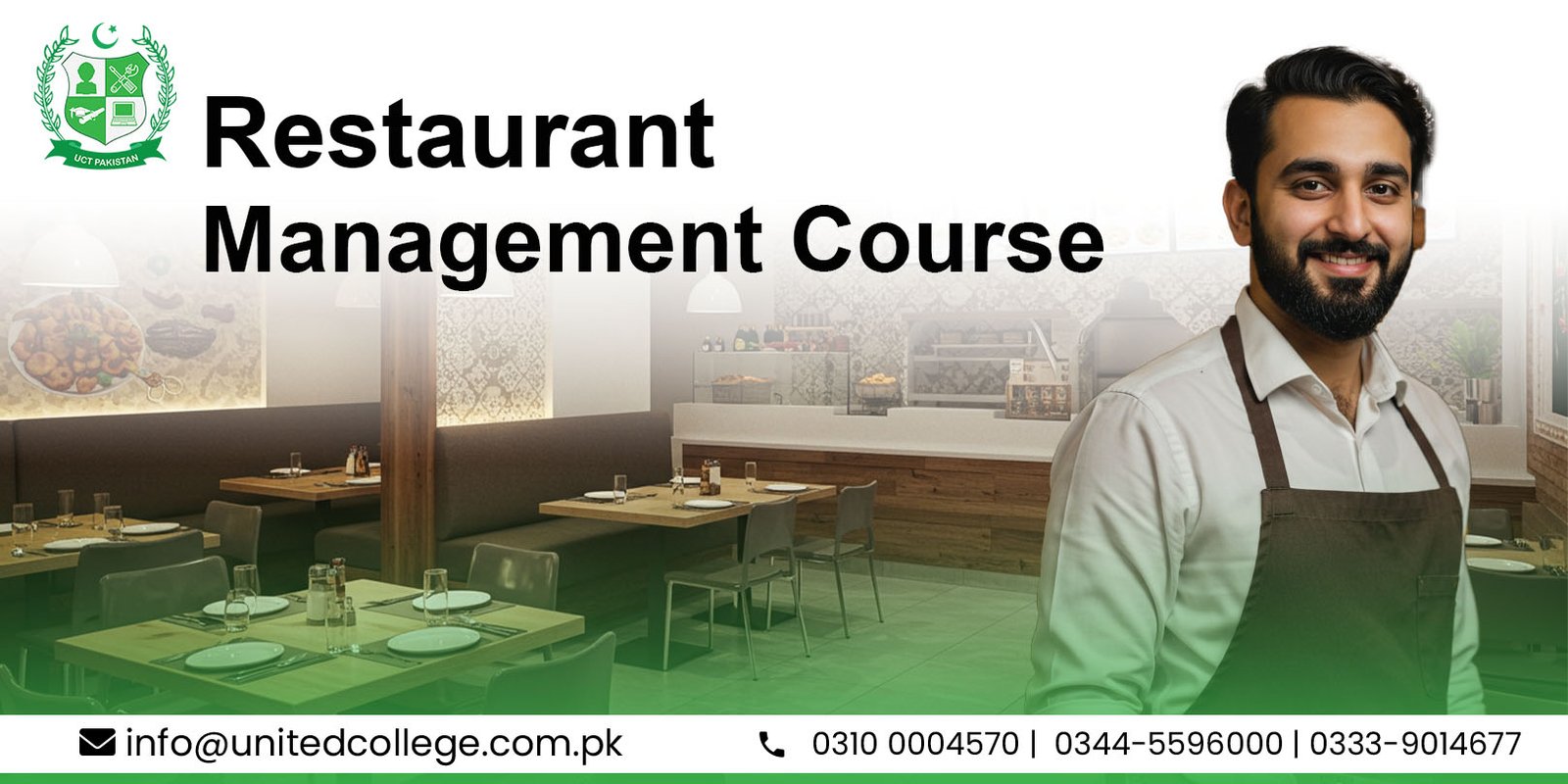

The Restaurants Management Course in Rawalpindi at United College of Technology (UCT) is designed for individuals who want to build a successful career in the hospitality and food service industry. This comprehensive program covers the essential skills needed to manage restaurants, cafes, catering businesses, and other dining establishments effectively. With a blend of practical training and theoretical knowledge, students will learn everything from food safety and customer service to financial planning and marketing strategies. Whether you are a fresh learner or an industry professional looking to upgrade your skills, this course provides the tools to excel in restaurant management.
This section introduces students to the core responsibilities of a restaurant manager, including daily operations, staff coordination, and customer service excellence. Participants learn how to create efficient workflows, maintain quality standards, and ensure smooth service. The focus is on combining operational efficiency with guest satisfaction, a crucial factor for long-term success in the hospitality industry.
Strong customer service is the backbone of any successful restaurant. In this module, students explore effective communication skills, guest handling techniques, and complaint resolution strategies. They will also learn how to create memorable dining experiences that encourage repeat business, making them highly valuable to any hospitality training institute in Rawalpindi.
Food safety is a non-negotiable aspect of restaurant operations. This section covers hygiene protocols, kitchen safety measures, and compliance with local and international food handling regulations. Students will gain practical knowledge about preventing foodborne illnesses and maintaining a clean, safe dining environment.
A well-designed menu is a restaurant’s best marketing tool. This topic focuses on menu engineering, pricing strategies, and seasonal menu adjustments. Students learn how to collaborate with chefs, integrate culinary arts diploma knowledge, and offer dishes that balance profitability with customer satisfaction.
Marketing plays a critical role in attracting and retaining customers. This section covers both traditional and digital marketing strategies, including social media promotion, loyalty programs, and partnerships. Students also learn branding techniques that set a restaurant apart in a competitive market.
This module teaches budgeting, cost control, and profit analysis, enabling students to keep operations financially sustainable. They will understand how to manage inventory costs, optimize labor expenses, and analyze sales data for better decision-making in the restaurant business context.
Effective leadership is key to running a productive restaurant team. This section focuses on staff recruitment, training, scheduling, and motivation techniques. Students also learn conflict resolution and performance management, essential for maintaining a positive workplace culture.
Many restaurants expand their services into catering and events. This module covers catering management course principles, including event planning, large-scale food preparation, and service coordination. It also teaches how to handle logistics, budgets, and client relationships for successful events.
Modern restaurants use technology to streamline operations. This section introduces POS systems, reservation management software, and online ordering platforms. Students learn how these tools improve efficiency, reduce errors, and enhance customer satisfaction.
Operating a restaurant requires adherence to local laws and licensing requirements. This module covers permits, tax obligations, and labor laws, ensuring that graduates can manage businesses that meet all legal standards.
Students participate in hands-on training sessions that simulate real-world restaurant scenarios. They also benefit from internships and industry visits, which provide insights into actual operations and management challenges in food service training in Rawalpindi.
Graduates of the Restaurants Management Course in Rawalpindi can pursue careers as:


.jpg)
.jpg)
.jpg)
.jpg)
The course is open to students with at least matriculation or equivalent education. However, individuals with prior experience in hospitality, catering, or culinary fields can benefit even more. No previous restaurant management experience is required, as the program starts from the basics and advances to professional-level training.
You will gain expertise in customer service, food safety, menu planning, restaurant marketing, financial management, and leadership. The course also includes practical training in catering management, culinary coordination, and modern restaurant technologies like POS systems.
Yes, the course covers all essential aspects of running a restaurant business, including legal compliance, budgeting, branding, and staff management. Many graduates use these skills to successfully launch their own restaurants, cafes, or catering services.
The course duration varies between 3 to 6 months depending on the program type (certificate or diploma). Classes include both theory and hands-on sessions, ensuring you graduate with practical, industry-ready skills.
Graduates can work as restaurant managers, catering supervisors, food and beverage coordinators, or hospitality consultants. The skills are also transferable to hotels, resorts, cruise lines, and other food service businesses worldwide.













